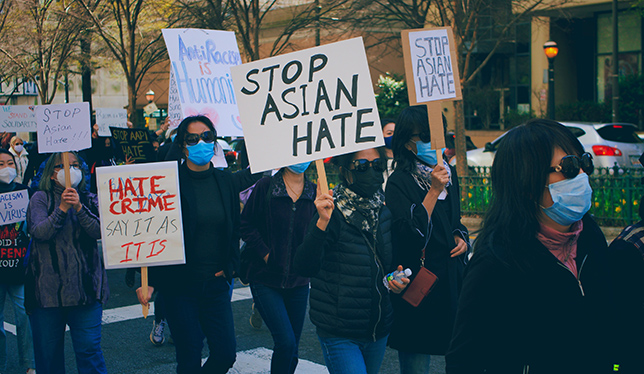A report published online at link says
Earlier this spring, Santa Ono was taking a walk with his wife and daughter in Vancouver’s False Creek, marveling at the city’s beauty. “We were making our way back to my car and a lady’s there,” said Dr. Ono. “We’re walking towards her, and she starts to yell at the top of her lungs. ‘Get out of here! Get out of here!’ And then when we got closer, she said, ‘You’re garbage. You’re garbage. You don’t belong here.’”
Dr. Ono, president and vice-chancellor of the University of British Columbia, is Japanese Canadian. Not only has he experienced first-hand the rise in anti-Asian discrimination in the past year, he’s also heard the calls for tangible ways to address, challenge and eliminate it. “I don’t want that to be the Canada for my daughter,” he said.
On June 10 and 11, UBC is hosting a national forum to address anti-Asian racism, which has increased since the COVID-19 pandemic began. According to a University of Toronto study released in March 2021, reports of anti-Asian discrimination more than tripled over the past year. Social demographer Weiguo Zhang, who co-led the U of T research team, suggests anti-Asian racist attitudes that already existed before the pandemic were brought out more openly after the pandemic, which originated in Wuhan, China, started.
Before the U of T study, in June 2020, the Angus Reid Institute and the University of Alberta released findings from a study on acts of anti-Chinese racism – such as assaults, threats and graffiti – during the COVID-19 pandemic. In a survey of 500 Chinese Canadians, half reported being called names or insulted as a direct result of the pandemic and 43 per cent said they had been threatened or intimidated.
Dr. Ono said that “escalating anti-Asian racism is something that’s very real in Canada, very real in British Columbia and Vancouver, especially.” The university has a task force that’s looking at racism on campus and part of that process involved Dr. Ono speaking with students, faculty and staff. “They don’t feel safe, to be frank, after what happened in Atlanta,” he notes. “Some of [the students I spoke to] were in tears about how they feel upset. One of our students was actually attacked … on our campus. People are really affected by the escalation in anti-Asian violence.”
Xiaobei Chen, professor of sociology at Carleton University, said she fears for her family, for her students and for her own safety. She organized and presented a panel at Congress 2021 on the very topic that’s creating that fear at Congress: anti-Asian racism in the COVID-19 pandemic.
Dr. Chen notes that stereotypes – in particular, the “model minority myth,” which paints all Asian people as successful, as the “better minority” compared to other racialized groups – don’t help in the fight against anti-Asian racism. “Peoples’ typical stereotype is that Asians are successful in professional jobs, economically prosperous and academically successful, if not overly successful,” she said. “But when we look at the statistics, we actually see that the poverty rate is also very high in Asian communities.”
She suggests the model minority myth is a tool used to weaken anti-racism efforts. “It was proposed as an alternative to the civil rights movement in the sense that [people thought,] ‘Look at these people. They are discriminated against too, but they managed to succeed, so we don’t need anti-racism.’” The myth has even been internalized, leading many Asian people to keep their heads down instead of speaking up and taking political action, Dr. Chen said.
Henry Yu, associate professor in the department of history at UBC, is one of the organizers of the national forum. He said there’s a tendency to either think racism is a thing of the past or that it’s debilitating, and that there’s nothing we can do about it. “In Canada, perhaps unlike the United States, we perhaps have the opinion of ourselves as having solved this,” he said. But “if we want to have a society together that really is just and fair … we should be dealing with this [racism].”
Dr. Ono is hopeful anti-Asian discrimination will someday be a thing of the past and is optimistic UBC’s forum — which is bringing together experts in education, health care, government and media from across the country “to have candid conversations about the root causes of anti-Asian racism, but also to develop bold and concrete action” — can help make that happen.
“Not that long ago … the University of British Columbia apologized for and conferred honorary degrees to Japanese Canadians who had been removed from the university before they could receive their degrees and sent to internment camps [during the Second World War]. And it took a long time to own up to that,” he said. UBC “went from removing Japanese Canadians, to appointing a Japanese Canadian to be president. Even 30 years ago, and maybe even 20 years ago, [that] was unthinkable.”

0 comments